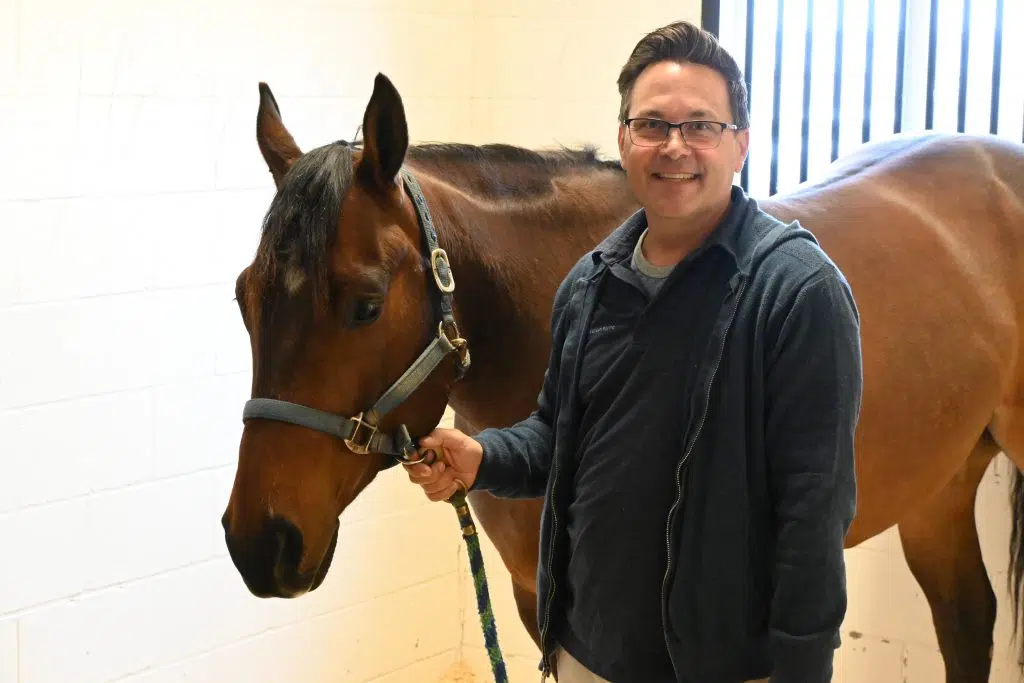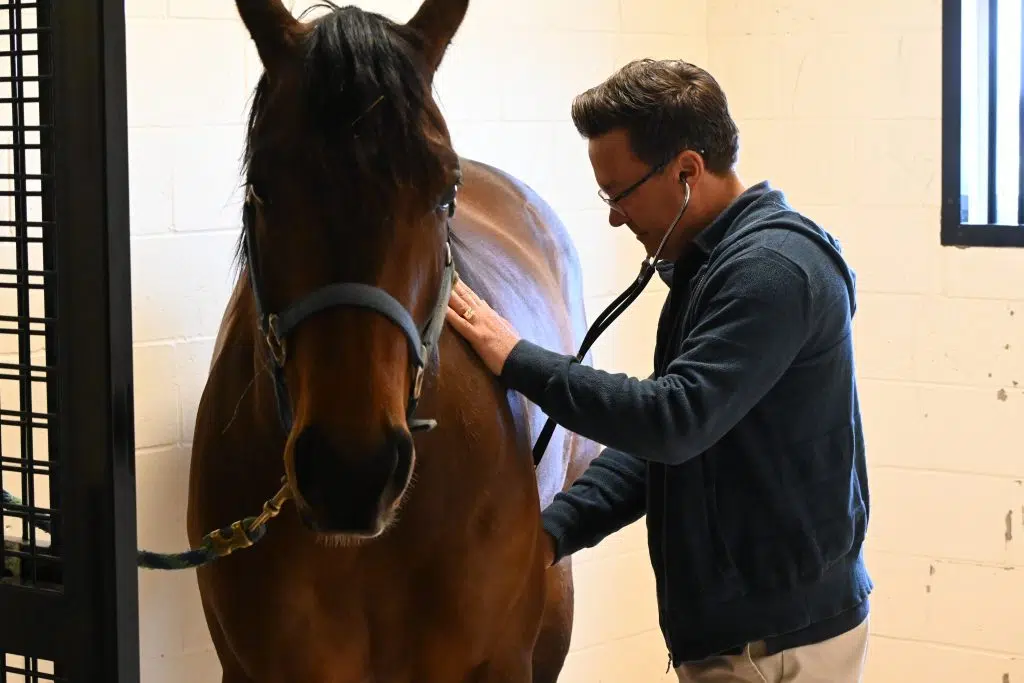As students begin to graduate from high school this month, we wanted to take some time to explore different careers within the ag industry. One career that’s in high demand is large animal veterinarians like Dr. Rob Blohowiak, the owner of Great Lakes Equine in Hortonville.

Blohowiak is no stranger to the horse world, he grew up around horses and still trains some and competes to this day. As a result, that’s how he entered into the veterinarian side of agriculture with the help of a vet that he looked up to. “I didn’t specifically always want to be a veterinarian, but I wanted to do something with horses…ultimately, I found a mentor, a veterinarian that I respected that was helping me with some of my performance horses, and then that blossomed into, hey I think that’s something I could do,” Blohowiak said.
At this time, there’s a huge calling for large animal vets, not just in Wisconsin, but everywhere. He explained that most people who go to school to become a vet normally choose the small animal side because it’s more of a structured schedule and a higher pay rate. He said that small animal veterinarians normally don’t have to deal with emergency surgeries outside of their typical hours because there are referral centers that take care of those, unlike a large animal vet who has to be there as needed. When it comes to the pay, according to ZipRecruiter the average small animal veterinarian in Wisconsin makes $76,852 a year, while a large animal vet makes $51,959.

One thing Blohowiak mentioned that people misunderstand is that just because he’s a veterinarian, doesn’t mean that he takes care of all types of animals. He explained that when you go to school to be a vet, you have to learn about all of the major animals you could be dealing with, but then you start to hone in on specifics. For example, at his practice, all of the doctors spent a year or more at a specialty equine practice to learn as much as possible about equine and keep up to date with strictly equine topics. “My wife asks me about our dog and we take our dog to the veterinarian. I’m not my dog’s vet,” he said.
As for the schooling to become a veterinarian, it’s really not as long as you may assume. Blohowiak explained that even though most people do, you don’t have to have a Bachelor’s degree in order to get into vet school. If you have your prerequisites done within two years of college, then you can apply for vet school. Once you get into medical school, that’s a four-year program so the fastest you could get in and out would be six years.
The six-year plan sounds ideal but isn’t always realistic because the schooling is very hard. “It’s tough and it’s difficult to get into,” Blohowiak said that Madison normally gets more applicants for the veterinary school than the medical school and they also let fewer students into the program. “While you’re there it’s busy, it’s full-on…you spend a lot of time trying to get into vet school, and then you spend the whole four years trying to get out.”

He said that if you’re interested in becoming a veterinarian or even looking into it, spend time at a practice. For example, at Great Lakes Equine, they do a lot of job shadows and externships where a student can spend a week at the practice to find out what it’s all about and see if it’s something they want to pursue.
In a career like this, there are a lot of highs, but also a lot of lows. You can lose animals or have no choice but to euthanize them and have to explain to the family what happened. It’s a career that takes a huge toll on people mentally, which is one of the reasons veterinarians have such a high suicide rate. The CDC did a study in 2015 that found one in six vets consider suicide and between 1979 and 2015, they committed suicide between two and 3.5 times more than the national average.
“It’s due in large part to what they call compassion fatigue and that is losing their patients, veterinarians are under a very high debt load, it costs a lot to go to school,” Blohowiak went on to explain, “when you get out it doesn’t pay like being a human physician does, so you’re under a lot of stress because there’s financial stress. Couple that with having to make hard decisions about people’s pets.” Luckily, there are programs to help veterinarians with mental health and the everyday toll of the profession. He said that at UW-Madison they unfortunately just lost a veterinarian to suicide. It’s a very real problem.
Although that is the harsh reality of the career field, don’t get him wrong, there are a lot of upsides to being a veterinarian as well. He mentioned how much of a rewarding job it can be knowing that you’re taking care of these animals and are doing something to help out and make a difference. There is a lot of feel-good to the position.
Dr. Blohowiak said that if you’re interested in veterinary medicine, reach out to a local vet and visit them to see what it’s all about. Veterinarians are in such high demand, it’s a good field to get into. “We really need people and at the end of the day it’s very rewarding,” Blohowiak said.
You can check out the full interview on our podcast page.





